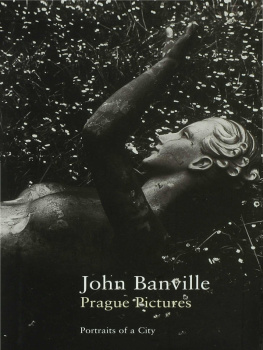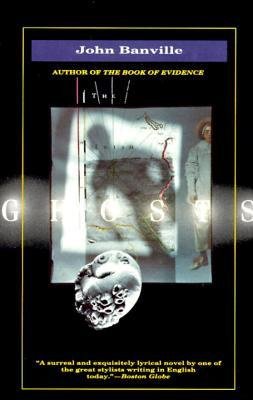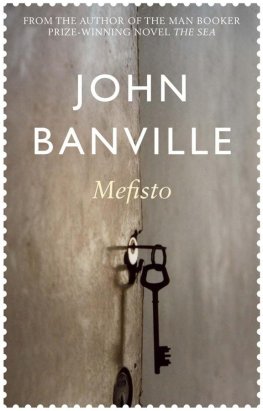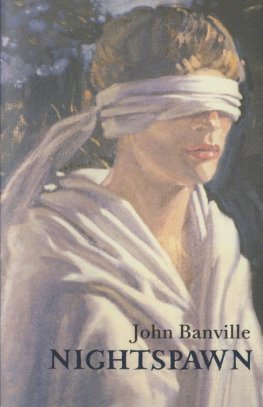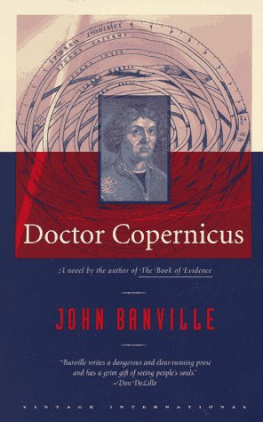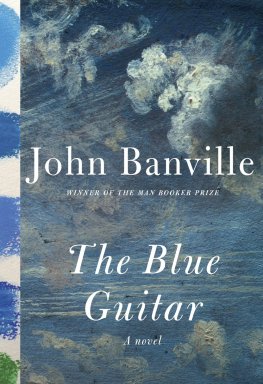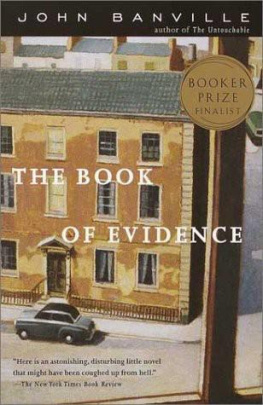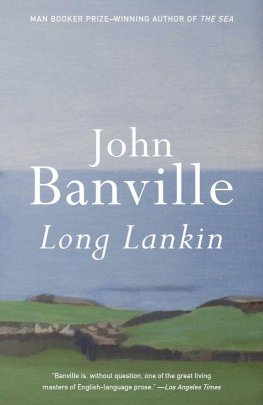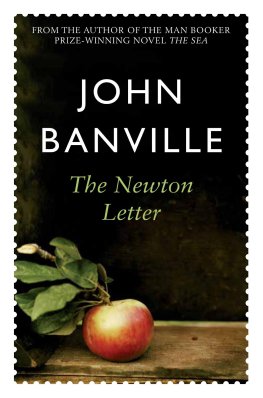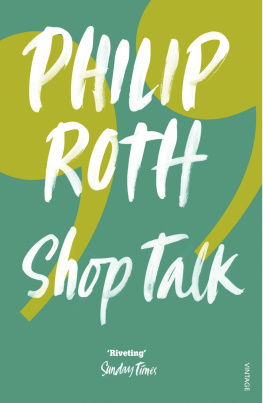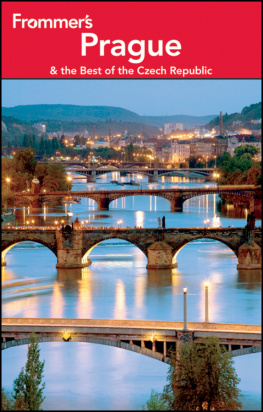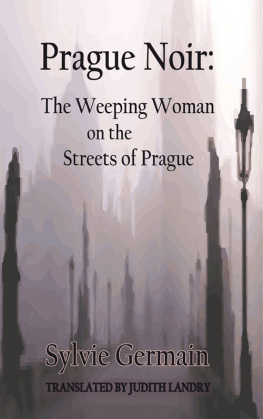John Banville - Prague Pictures: A Portrait of the City (The Writer and the City)
Here you can read online John Banville - Prague Pictures: A Portrait of the City (The Writer and the City) full text of the book (entire story) in english for free. Download pdf and epub, get meaning, cover and reviews about this ebook. year: 2004, publisher: Bloomsbury USA, genre: Detective and thriller. Description of the work, (preface) as well as reviews are available. Best literature library LitArk.com created for fans of good reading and offers a wide selection of genres:
Romance novel
Science fiction
Adventure
Detective
Science
History
Home and family
Prose
Art
Politics
Computer
Non-fiction
Religion
Business
Children
Humor
Choose a favorite category and find really read worthwhile books. Enjoy immersion in the world of imagination, feel the emotions of the characters or learn something new for yourself, make an fascinating discovery.
- Book:Prague Pictures: A Portrait of the City (The Writer and the City)
- Author:
- Publisher:Bloomsbury USA
- Genre:
- Year:2004
- Rating:3 / 5
- Favourites:Add to favourites
- Your mark:
- 60
- 1
- 2
- 3
- 4
- 5
Prague Pictures: A Portrait of the City (The Writer and the City): summary, description and annotation
We offer to read an annotation, description, summary or preface (depends on what the author of the book "Prague Pictures: A Portrait of the City (The Writer and the City)" wrote himself). If you haven't found the necessary information about the book — write in the comments, we will try to find it.
Prague Pictures: A Portrait of the City (The Writer and the City) — read online for free the complete book (whole text) full work
Below is the text of the book, divided by pages. System saving the place of the last page read, allows you to conveniently read the book "Prague Pictures: A Portrait of the City (The Writer and the City)" online for free, without having to search again every time where you left off. Put a bookmark, and you can go to the page where you finished reading at any time.
Font size:
Interval:
Bookmark:
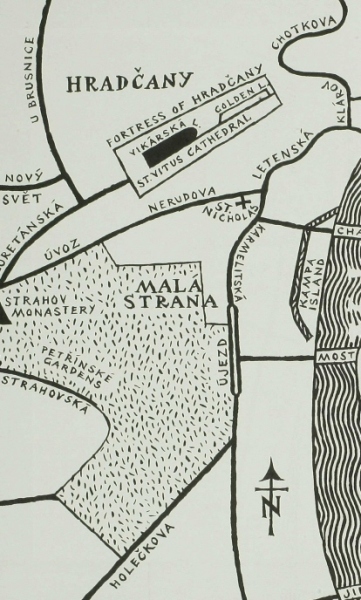
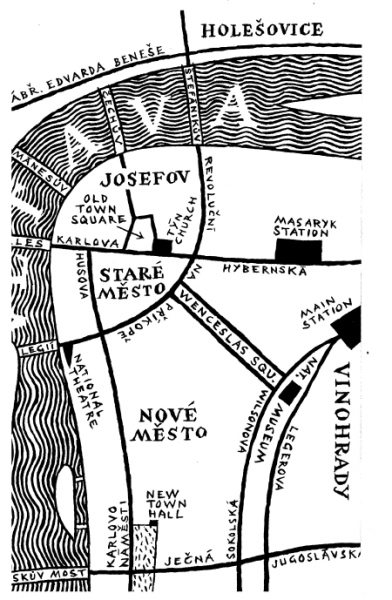
BY THE SAME AUTHOR
Long Lankin
Nightspawn
Birchwood
Doctor Copernicus
Kepler
The Newton Letter
Mefisto
The Book of Evidence
Ghosts
Athena
The Untouchable
Eclipse
Shroud
Prague Pictures
Portraits of a City
John Banville
BLOOMSBURY
Excerpts from Magic Prague reprinted by permission of Palgrave Macmillan.
Quotations from The Trial reprinted by permission of Penguin Books. Copyright Idris Parry, 1994.
Excerpts from Sudek by Sonja Bullaty and Angelo Lomeo reprinted by permission of Clarkson Potter
Publishers, a division of Random House, Inc.
Copyright 1986 by Sonja Bullaty.
The extracts from Samuel Beckett's translation of 'Zone' by Apollinaire on page 34 are reprinted by kind permission of Calder Publications.
The Joseph Brodsky quotation on pages 107-8 is from Pushkin's Children: Writings on Russia and Russians by Tatyana Tolstaya, translated by Jamey Gambrell.
Copyright 2003 by Tatyana Tolstaya. English translation
copyright 1991, 1992, 1993, 1994, 1996, 1997, 1998,
2000 by Jamey Gambrell. Reprinted by permission of Houghton Miffin Company. All rights reserved.
The lines from 'The Four Quartets' on page 230 are taken from Collected Poems 1909-1952 by T. S. Eliot. Reproduced by permission of Faber & Faber Ltd and Harcourt Inc.
Copyright 2003 by John Banville
All rights reserved. No part of this book may be used or reproduced in any manner whatsoever without written permission from the publisher except in the case of brief quotations embodied in critical articles or reviews. For information address Bloomsbury, 175 Fifth Avenue,
New York, NY 10010.
Published by Bloomsbury, New York and London
Distributed to the trade by Holtzbrinck Publishers
Library of Congress Cataloging-in-Publication Data has been applied for.
eISBN: 978-1-59691-713-2
First U.S. Edition 2004
10 9 8 7 6 5 4 3 2 1
Typeset by Hewer Text Ltd, Edinburgh
Printed by Clays Ltd, St Ives plc
Contents
To Ola Dunham
So much I loved you, though with words alone,my lovely city, when your cloak was thrownwide open to reveal your lilac charms;much more was said by those who carried arms.
- To Prague', Jaroslav Seifert,
translated by Ewald Osers
Should we have stayed at home and thought of here?
-'Questions of Travel', Elizabeth Bishop
This is not a guidebook, nor was meant to be. As to what it is, that is harder to say. A handful of recollections, variations on a theme. An effort to conjure a place by a mingled effort of memory and imagination. A sad song of love to a beloved that can never reciprocate... Cities exert a strong, strange fascination, and none is stranger or stronger than the pull of Prague upon the heart of the homesick traveller - sick that is not for his native place, but for the city on the Vltava that he has left behind. Returning there, he feels he has never been away, and yet feels guilty, too, of forgetfulness, neglect, infidelity. Perhaps that is what this is, then, a peace token, a placatory gift tentatively proffered, or just a faithless lover's letter of apology.
I
PERSPECTIVE: SUDEK'S CITY
It was winter the first time I saw Prague, the city blanketed with snow and glistening in the sunlight of an unseasonably bright late January. Perhaps it is the snow that intensifies the silence of the city in these, my earliest memories of it. Prague's silence is more a presence than an absence. The sounds of the traffic, the voices in the streets, the tolling of bells and the chiming of innumerable public clocks, all resonate against the background hush as if against a high, clear pane of glass. There is too in my recollections a sense somehow of incipient flight, of everything in that sparkling scene being poised to slip its tethers and rise up into the dome of brilliant blue: poised, but never to break free. At that time, in the early 1980s, the Cold War was going through one of its decidedly warmer phases, although it was, did we but know it, already beginning to end. I had come to Czechoslovakia in the expectation that all my received ideas of what life was like in Eastern Europe would be overturned. I was to be disappointed - most of the cliches about communist rule would prove dispiritingly accurate - but also strangely exhilarated. Elsewhere is always a surprise.
We had agreed to meet up, J. and G. and I, in Trieste, that melancholy, pearl-grey port where the two women were spending a couple of waterlogged days - Prague's snow was Trieste's slush. The women were eager to get away, and we left on the evening of my arrival, taking the Budapest train and changing at midnight in Ljubljana to the sleeper for Prague. That word, 'sleeper', proved to be a misnomer, for in our carriage of couchettes no one slept, except a large fat man in a shiny pinstriped suit, who snored. At every unpronounceable station along the way the train had to stop and catch its breath, standing in the dark and wheezing like a sick horse. Did we pass through Vienna or did I dream it in a doze? At the Czech border two greatcoated guards with automatic rifles got on board and examined our passports with sceptical frowns, thumbing doggedly back and forth through the pages, searching for something they seemed aggrieved not to find. Their guns looked altogether too square and stubby and ill-designed to be effective, and might have been made of cardboard, but still were frightening. The fat man was hard to wake; at last he sat up blearily and began patting his pockets; producing his papers, he muttered something that made the waiting guards glance at each other briefly and laugh. I rubbed a clear patch on the window and looked out on a bleak expanse of no man's land the size of a football pitch, with ghostly patches of glittering ice, and a watchtower on stilts, starkly lit, and lamps glowing in the frozen mist like giant dandelion heads, and dim, bundled figures moving spectrally over the countless criss-crossing lines of dully gleaming rail. As I was turning from the window I noticed that someone had blown his nose on the tied-back oatmeal-coloured curtain beside me. The guard who had been inspecting my passport handed it back and in a guttural accent straight out of an old war movie bade me welcome to Czechoslovakia.
Our hotel, the name of which refuses to be recalled, was a large, gaunt cube of concrete and dusty glass on a nondescript street which in subsequent sojourns in the city I have been consistently unable to re-find. It was somewhere not far from Wenceslas Square. The hotel was one of a not extensive list of such establishments officially approved to accommodate tourists from the West, all of whom, we had been warned, were regarded by the authorities as part-time spies, by illegal money-changers as a costive but surely inexhaustible source of precious dollars, and by the young as spoilt playboys and playgirls who, despite their fabulous and ostentatious wealth, might be persuaded to take their jeans off in the street and sell them for handfuls of next to worthless Czech koruny. And indeed, we had hardly stepped into the hotel lobby when we were approached by a broadly smiling young man, hands jauntily hitched in the high pockets of his tight leather jacket, who in a curious, crooning English offered to convert our money at what he assured us would be 'top-dollar rates, the highest in town'. In demonstration of the weight of this offer he quickly flashed a brick-sized block of koruny - because of that currency's unsayable abbreviation,
Next pageFont size:
Interval:
Bookmark:
Similar books «Prague Pictures: A Portrait of the City (The Writer and the City)»
Look at similar books to Prague Pictures: A Portrait of the City (The Writer and the City). We have selected literature similar in name and meaning in the hope of providing readers with more options to find new, interesting, not yet read works.
Discussion, reviews of the book Prague Pictures: A Portrait of the City (The Writer and the City) and just readers' own opinions. Leave your comments, write what you think about the work, its meaning or the main characters. Specify what exactly you liked and what you didn't like, and why you think so.

